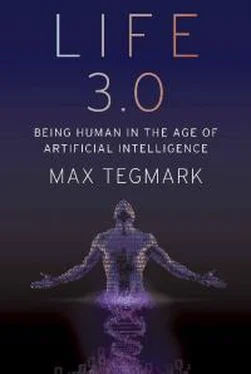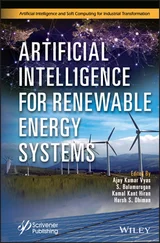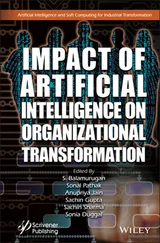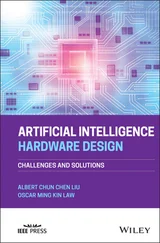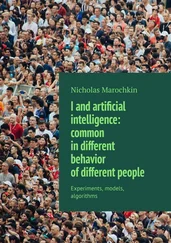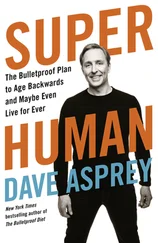In the libertarian-utopia scenario, suffering need not be limited to humans. If some machines are imbued with conscious emotional experiences, then they too can suffer. For example, a vindictive psychopath could legally take an uploaded copy of his enemy and subject it to the most horrendous torture in a virtual world, creating pain of intensity and duration far beyond what’s biologically possible in the real world.
Benevolent Dictator
Let’s now explore a scenario where all these forms of suffering are absent because a single benevolent superintelligence runs the world and enforces strict rules designed to maximize its model of human happiness. This is one possible outcome of the first Omega scenario from the previous chapter, where they relinquish control to Prometheus after figuring out how to make it want a flourishing human society.
Thanks to amazing technologies developed by the dictator AI, humanity is free from poverty, disease and other low-tech problems, and all humans enjoy a life of luxurious leisure. They have all their basic needs taken care of, while AI-controlled machines produce all necessary goods and services. Crime is practically eliminated, because the dictator AI is essentially omniscient and efficiently punishes anyone disobeying the rules. Everybody wears the security bracelet from the last chapter (or a more convenient implanted version), capable of real-time surveillance, punishment, sedation and execution. Everybody knows that they live in an AI dictatorship with extreme surveillance and policing, but most people view this as a good thing.
The superintelligent AI dictator has as its goal to figure out what human utopia looks like given the evolved preferences encoded in our genes, and to implement it. By clever foresight from the humans who brought the AI into existence, it doesn’t simply try to maximize our self-reported happiness, say by putting everyone on intravenous morphine drip. Instead, the AI uses quite a subtle and complex definition of human flourishing, and has turned Earth into a highly enriched zoo environment that’s really fun for humans to live in. As a result, most people find their lives highly fulfilling and meaningful.
The Sector System
Valuing diversity, and recognizing that different people have different preferences, the AI has divided Earth into different sectors for people to choose between, to enjoy the company of kindred spirits. Here are some examples:
• Knowledge sector: Here the AI provides optimized education, including immersive virtual-reality experiences, enabling you to learn all you’re capable of about any topics of your choice. Optionally, you can choose not to be told certain beautiful insights, but to be led close and then have the joy of rediscovering them for yourself.
• Art sector: Here opportunities abound to enjoy, create and share music, art, literature and other forms of creative expression.
• Hedonistic sector: Locals refer to it as the party sector, and it’s second to none for those yearning for delectable cuisine, passion, intimacy or just wild fun.
• Pious sector: There are many of these, corresponding to different religions, whose rules are strictly enforced.
• Wildlife sector: Whether you’re looking for beautiful beaches, lovely lakes, magnificent mountains or fantastic fjords, here they are.
• Traditional sector: Here you can grow your own food and live off the land as in yesteryear—but without worrying about famine or disease.
• Gaming sector: If you like computer games, the AI has created truly mind-blowing options for you.
• Virtual sector: If you want a vacation from your physical body, the AI will keep it hydrated, fed, exercised and clean while you explore virtual words through neural implants.
• Prison sector: If you break rules, you’ll end up here for retraining unless you get the instant death penalty.
In addition to these “traditionally” themed sectors, there are others with modern themes that today’s humans wouldn’t even understand. People are initially free to move between sectors whenever they want, which takes very little time thanks to the AI’s hypersonic transportation system. For example, after spending an intense week in the knowledge sector learning about the ultimate laws of physics that the AI has discovered, you might decide to cut loose in the hedonistic sector over the weekend and then relax for a few days at a beach resort in the wildlife sector.
The AI enforces two tiers of rules: universal and local. Universal rules apply in all sectors, for example a ban on harming other people, making weapons or trying to create a rival superintelligence. Individual sectors have additional local rules on top of this, encoding certain moral values. The sector system therefore helps deal with values that don’t mesh. The largest number of local rules apply in the prison sector and some of the religious sectors, while there’s a Libertarian Sector whose denizens pride themselves on having no local rules whatsoever. All punishments, even local ones, are carried out by the AI, since a human punishing another human would violate the universal no-harm rule. If you violate a local rule, the AI gives you the choice (unless you’re in the prison sector) of accepting the prescribed punishment or banishment from that sector forever. For example, if two women get romantically involved in a sector where homosexuality is punished by a prison sentence (as it is in many countries today), the AI will let them choose between going to jail or permanently leaving that sector, never again meeting their old friends (unless they leave too).
Regardless of what sector they’re born in, all children get a minimum basic education from the AI, which includes knowledge about humanity as a whole and the fact that they’re free to visit and move to other sectors if they so choose.
The AI designed the large number of different sectors partly because it was created to value the human diversity that exists today. But each sector is a happier place than today’s technology would allow, because the AI has eliminated all traditional problems, including poverty and crime. For example, people in the hedonistic sector need not worry about sexually transmitted diseases (they’ve been eradicated), hangovers or addiction (the AI has developed perfect recreational drugs with no negative side effects). Indeed, nobody in any sector need worry about any disease, because the AI is able to repair human bodies with nanotechnology. Residents of many sectors get to enjoy high-tech architecture that makes typical sci-fi visions pale in comparison.
In summary, while the libertarian-utopia and benevolent-dictator scenarios both involve extreme AI-fueled technology and wealth, they differ in terms of who’s in charge and their goals. In the libertarian utopia, those with technology and property decide what to do with it, while in the present scenario, the dictator AI has unlimited power and sets the ultimate goal: turning Earth into an all-inclusive pleasure cruise themed in accordance with people’s preferences. Since the AI lets people choose between many alternate paths to happiness and takes care of their material needs, this means that if someone suffers, it’s out of their own free choice.
Downsides
Although the benevolent dictatorship teems with positive experiences and is rather free from suffering, many people nonetheless feel that things could be better. First of all, some people wish that humans had more freedom in shaping their society and their destiny, but they keep these wishes to themselves because they know that it would be suicidal to challenge the overwhelming power of the machine that rules them all. Some groups want the freedom to have as many children as they want, and resent the AI’s insistence on sustainability through population control. Gun enthusiasts abhor the ban on building and using weapons, and some scientists dislike the ban on building their own superintelligence. Many people feel moral outrage over what goes on in other sectors, worry that their children will choose to move there, and yearn for the freedom to impose their own moral code everywhere.
Читать дальше
